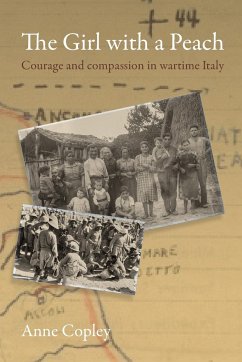In September 1943 the biggest mass prison breakout in history occurred when Italy changed sides in the Second World War and signed an armistice with the Allies, providing an opportunity for 50,000 Allied PoWs to make their escape from prison camps all over Italy. They had spent up to three years enduring severe privation and sometimes inhuman treatment following capture in North Africa and transfer across the Mediterranean. Now huge numbers quietly merged into the surrounding countryside, with little idea as to what to do next or of the dangers they might face from the encroaching Germans and the local Italian Fascists.To their surprise they were immediately welcomed by the local populace, their sworn enemies only days before. In great numbers the poorest section of Italian society - the contadini (sharecroppers) - took them into their homes and sheltered them from harm for up to 18 months as Italy was slowly liberated by the Allies. During that time these young men from many different nations who had never before been far from home found themselves immersed in the medieval existence of the Italian peasant, learning the language, working in the fields, socialising in their clandestine communities, and all the while dodging recapture by their enemies.Anne Copley tells this unique story from the perspective of the ordinary soldier, which has been too long neglected in accounts of one of the most remarkable acts of humanity in the midst of war. It is a tale of the courage shown by the most oppressed in Italian society and their harbouring of ex-PoWs despite risking death and destruction in doing so; together with the forging of bonds of friendship that have continued down through the generations to the present day.








